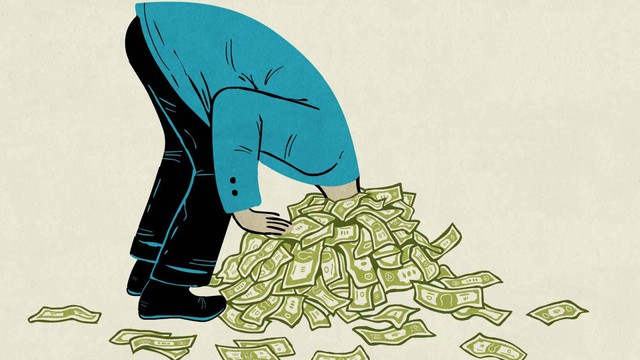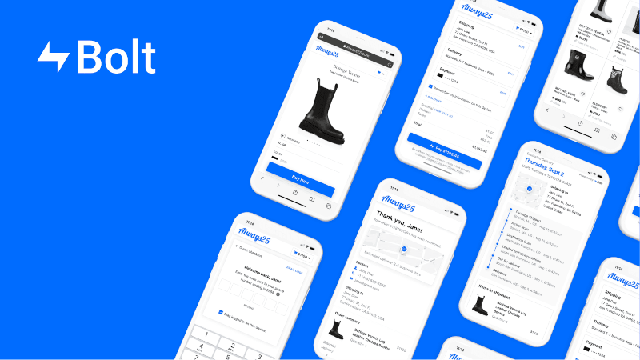Startups don’t push ‘superficial’ ideas like revenue or users at all costs for the sake of pricing!
Recently, I had the opportunity to meet and talk with many early-stage startup founders. They shared with me that being ‘advised’ should prioritize Top-line growth such as revenue or total transaction value (GMV – Gross Merchandise Value), because the valuation (Valuation) when raising capital will are based on these numbers.
However, from my point of view, this ‘advice’ is not always true for startups, especially early stage startups. It can even ‘kill’ these startups!
In the past time, everyone in the startup ecosystem from startup founders, investors, media, cheered for ‘successful’ fundraising information with call amount and valuation. startup increases in each round, but we are not sober enough to ask the question: ‘Should we do it or not?’, ‘success is success’?
We can often just talk about ‘on the surface’ metrics of a startup, like GMV value or registered users.
Founders are under tremendous pressure every time their competitors raise more capital, putting them under a lot of pressure and relentless pursuit of market leadership, with higher valuations. at any cost. Because of that, they sometimes rush to ignore the foundational values, with the qualitative development along with the ‘deep’ indicators of the startup at an early stage.

Hoang Thi Kim Dung – Investor of Genesia Ventures Fund
Recently, I also completed the Disruptive Strategy course of Harvard Business School Online, taught by Professor Clayton Christensen.
The professor shared a theory called “Good money and Bad Money Theory” – based on the core of Gresham’s law, with innovation applied to business activities, sustainable development with innovation. .
This professor said that money (Money or Capital) has characteristics that reflect the requirements of investors. Bad Money is money that people want to multiply quickly. To do so, investors expect startups to follow a deliberate strategy, focusing on the huge future opportunity.
That still makes sense, until we realize: in fact, it won’t make sense if the business has not found the real “right win-win strategy”. Then, focusing at all costs on the wrong, inappropriate strategy, with the desire to create big and fast results, is the essence of “bad money”.
In contrast, with Good Money, investors will ask the startup to prioritize finding the right strategy effectively first, with the least initial investment possible. “Good money” will force founders to keep their fixed costs low when entering the market and prioritize finding the right winning strategy.
Professor Clayton Christensen further explains: the reality is that 90% of companies eventually succeed because they abandoned their initial misguided strategy – because the original plan proved to be unworkable.
In other words, a successful business may not have the right strategy in the first place but then fix it up; or more precisely, since they still have money left after the initial strategy fails, it is possible to pivot and try a different approach. In contrast, most failed businesses “burn” all the money on their initial strategy – which is often wrong, before discovering the right strategy for them.
When the strategy to win is not yet clear in the early stages of a new business, investors with Good Money need to be patient, not putting pressure on startups to grow fast at all costs. At the same time, investors need to urge businesses to draw up a viable strategy as quickly and with as little investment as possible.:

“Bad money” can kill startups. Photo: Getty Images
In my previous blog post about “SCALE and the principle of the punctured basket: Don’t rush when the Startup is not ‘ripe’!”, I shared that an early-stage startup should not rush to expand, depend on and burn too much money from fundraising, when the company has not yet reached a “strategy to win”.
And the ‘strategy to win’ includes: Product Fit for Market (PMF: Product Market Fit), Sustainable Profitable Growth Model (Profitable Growth Model), Openable Operating Process Scalable Operation.
Accordingly, the amount of capital raised will be a multiple, the multiplier of the good or the bad at the startup, when used for effective or ineffective activities!
Any attempt to use a lot of money to scale without finding the “strategies to win” as mentioned above, will increase the waste of inefficiently used capital, thereby reducing the chances of eventual success. end of the startup.
The valuation of startups at an early stage when they have not found that “recipe to win”, based solely on revenue or total transaction value (GMV), causes founders to misunderstand or misunderstand what they need to prioritize. push topline growth at all costs. This will cause the startup to fall into a ‘blind spot’ that cannot find the real ‘recipe to win’ of the startup.
Last week, The NewYork Times reported on startup Bolt Financial. From Peter Thiel’s fund to BlackRock, blue-chip investors have invested nearly $1 billion, thanks to Bolt’s technology — essentially a version of Amazon’s “Buy Now” button that can be plugged in. online seller’s website, making payment easy.
In just over three years, Bolt has grown in value to $11 billion from $250 million, making himself yet another Silicon Valley success story.

The fact is: in its rush to show growth, Bolt often exaggerates its technological capabilities and misrepresents the number of sellers using its services. Besides, to continue to raise capital with higher valuation, the founder of this company continues to race to increase the number of transactions and the number of sellers using ‘at all costs’.
Since 2018, Bolt has communicated that: it has started to launch an anti-fraud service with a fraud detection algorithm for merchants using Bolt’s payment platform, this algorithm is currently being used. used to review most transactions coming through Bolt’s system.
The reality is: Bolt employees are dealing with “human reviews” and are encouraged to approve transactions even when they look risky. It was this that contributed to Bolt’s great loss.
In addition, the ‘add merchants to the platform’ race, which usually means that Bolt’s sales team signed transactions without having to verify that the merchant’s payment technology can integrate with Bolt or not.
For the past few weeks, there has been a heated discussion among startup investors about the coming ‘funding winter’. So, this is probably also a good time for startup founders and investors to contemplate, be more cautious and sober when looking at the true quality of startups at an early stage.
We can’t be engrossed in chasing frivolous, superficial metrics that are pushed up ‘at all costs’ and then ‘pay the price’ by not being able to continue raising capital to maintain the company’s operations!
A great company needs to be built on real values and under the right governance. I strongly believe that this ‘funding winter’ will be a good time to wake us up and that we need to change from Blitzscaling to Fitscaling, to move towards qualitative development, in a more appropriate way. and more sustainable.
Following the Economic Lifestyle
at Blogtuan.info – Source: cafebiz.vn – Read the original article here



